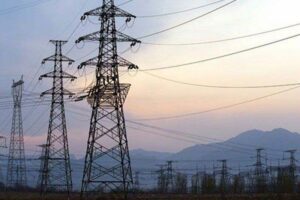THE National Grid Corp. of the Philippines (NGCP) reiterated that it is Filipino-controlled, allaying concerns about its Chinese shareholder’s role in operations.
“The State Grid Corp. of China (SGCC) does not exercise control over the power grid nor over NGCP,” NGCP Vice Chairman Henry Sy, Jr. told the House committee on legislative franchises in an opening statement, which was delivered by NGCP President and Chief Executive Officer Anthony L. Almeda.
Mr. Sy said domestic corporations Monte Oro Grid Resources Corp. and Calaca High Power Corp. each hold 30%, or a total of 60% of the outstanding capital stock of NGCP.
State Grid, on the other hand, holds a minority share of 40%.
On the matter of NGCP’s partnership with State Grid, he said the Chinese state-owned company was already on board and a shareholder agreement in place when he purchased his shares in 2010.
Mr. Sy also rejected reports that the Chinese can shut down the Philippine grid, saying that “it is NGCP alone, through its Filipino directors and personnel, and not the Chinese, which has control over the system operations.”
“The Chinese do not have control over the grid,” he said, adding “there is no proverbial single red button that can instantly turn off the grid” and there are protocols that actually prevent this.
He also said NGCP’s Supervisory Control and Data Acquisition system is a “secure stand-alone, isolated system not connected to any other network or internet,” thus making it safe from remote hacking.
On the sidelines of the House hearing, NGCP Assistant Vice-President and head of Public Relations Leonor Felipa Cynthia P. Alabanza told reporters that the NGCP system is “not connected to third-party service providers. We have our own system that is not connected to the World Wide Web or any internet service provider.”
All of NGCP’s engineers are Filipinos, she said, adding that “tight” security is enforced at all facilities.
Ms. Alabanza said the NGCP is open to a national security review as authorized by a 2022 law that liberalized foreign ownership in select domestic industries.
The three-year-old Public Services Act allowed full foreign ownership of telecommunications, shipping, airlines, and railway companies, among others. Foreign investments are subject to a national security review if their entry has national security implications, according to the law’s implementing rules and regulations.
“We have never shirked our responsibility to comply with all pertinent laws, rules, and regulations as well as the concession agreement. If that is what the government seeks to do, then we will seek redress elsewhere,” Ms. Alabanza said. “But certainly, we will comply if that is the case.”
Meanwhile, Mr. Sy in his statement said stability is required not just in the power supply, but in law, policy and regulation, for a more robust power industry.
“I strongly urge our DoE (Department of Energy) to look at the problem as a whole. The data are clear — 97% of the power interruptions from 2016 to 2023 were caused by problems in supply,” he said.
“We need stable, affordable baseload power. We need a comprehensive, aligned plan that considers the needs of all sectors. We are willing to be part of the solution, but transmission should not be the solution to everyone’s problems,” he added.
Mr. Sy sits on the NGCP board, whose other members include Robert G. Coyiuto, Jr., Jose T. Pardo, Francis Chua, Anthony L. Almeda, Zhu Guangchao, Paul P. Sagayo, Jr., Yao Yousheng, Wang Lijin, and Liu Xinhua.
The NGCP officially started operations as a power transmission service provider in 2009, it said.
Under a congressionally granted 50-year franchise, the company has the right to operate and maintain the transmission system and related facilities, and to exercise the right of eminent domain as needed to construct, expand, maintain, and operate the transmission system. — Sheldeen Joy Talavera, Kenneth Christiane L. Basilio

